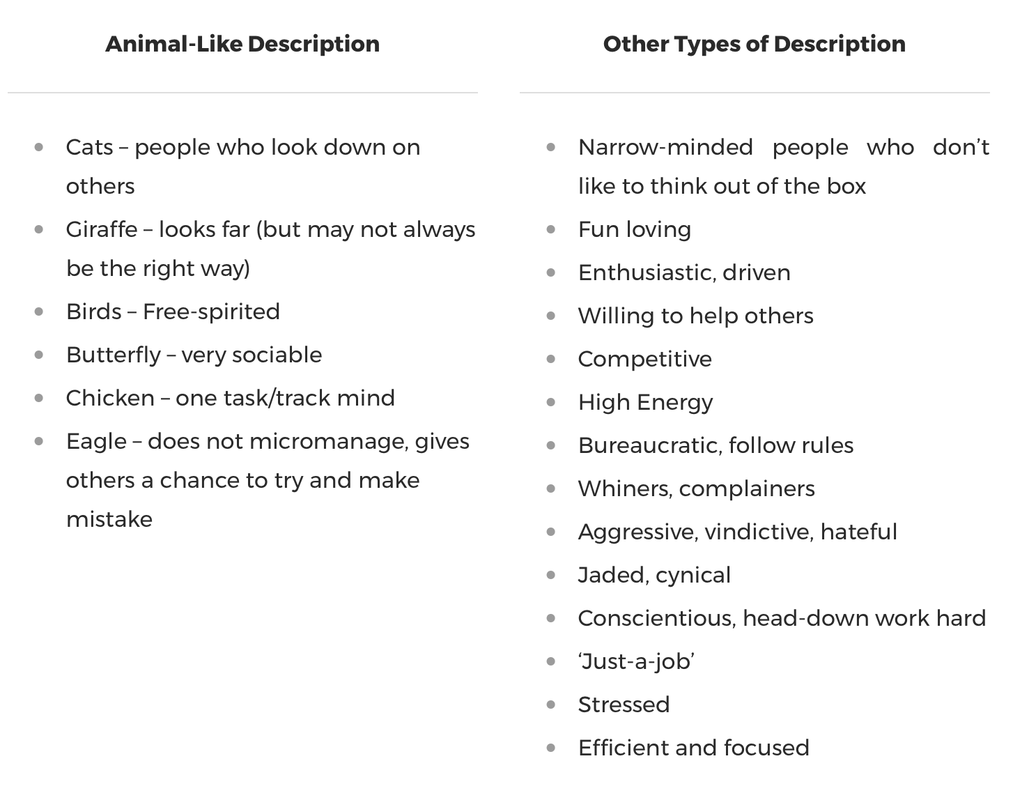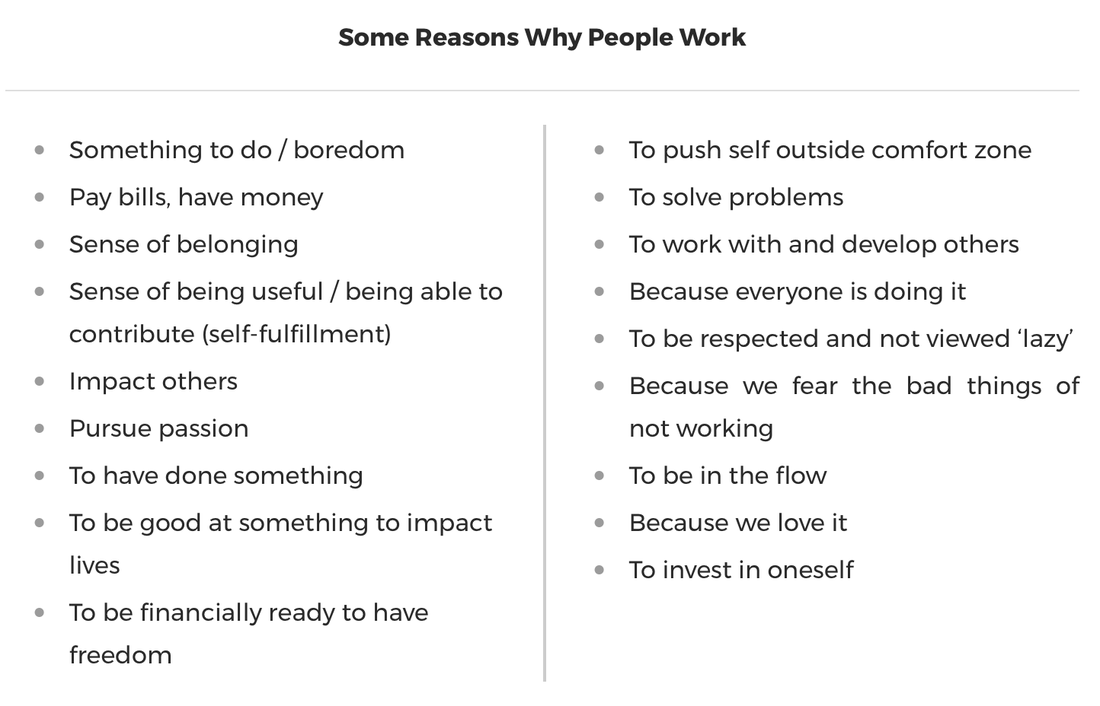|
Overview We all have dreams, desires and an ever-growing wish list of things we want to do in this lifetime. How far are we from achieving them? Like everything else that we work towards, do we stop to think about what it is we are doing today that can help us reach these dreams? Are these dreams of ours a source of motivation for us at work? Or are there other underlying factors that play a bigger role in our working lives? Types of People at Work Work is such a big part of our everyday life. It’s our first life, our second home – and one that we share with so many different types of people. Have you ever stopped to think about these people that we see in our workplace everyday? They are just like us, working everyday, but each a different type. How many of the following describes who we tend to be at work? How many resemble someone you know? Why are some people the way they are at work? What drives them? Why are there distinct differences? Why are some so happy at work, and yet others not? Could this be explained by motivations? What is motivation? It is the reason/reasons for behaving or acting in a certain way. We ask ourselves, what gives us reason(s) to work or want to work? Why do we work? We work for a multitude of reasons, and this reason could differ for each individual. We could work for survival, to maintain a certain kind of lifestyle, for people or relationships, or self-fulfillment. When some of these reasons are not fulfilled, it comes as no surprise why people may choose to leave their jobs for something and somewhere hopefully better. Yet, if we compare this to career switch decisions made by individuals in 2015, these reasons alone do not seem to fully explain why people leave their jobs. We may all have some reasons or something we are working towards and for. However, after this first set of considerations and conditions have been met, other factors do actually kick in. These other factors can either facilitate or pose as an obstacle to us in striving for the final outcome. It can influence how we feel about the work and how we perform at work, giving us more or less reasons to do the work. It turns out that there are two other questions we need ask to dig deeper. What is the nature of work vis a vis our working style? What is the environment in which we prefer to work? Have you ever stopped to think about how you tend to work or prefer to work? Have you also reflected on the different things at work that keeps you engaged? What about the context and environment in which you were at your best? What was it like? What was the nature of your job? What changed? What were the organization’s expectations of you? What were your colleagues like? What did you celebrate? What were you proud of? If we do some soul searching and reflection, we might see some emerging patterns that relates to our work preferences and inclinations such that we say we are in the flow of things when these are aligned with our work. Conversely, what if we apply the same questions to the activities that we simply cannot bear to do? What do we observe? And for the jobs that we left, what was the final reason we gave to ourselves for leaving? You might notice that we are all very different. If our reasons for work started off being very different, and we add further differences to it – such as the inclinations and preferred circumstances that keep us going, you can start to understand why we see different types of people at work. Some of us prefer autonomy, freedom and flexibility while others prefer structure, rules and procedures. Some of us love work diversity and constantly new challenges. Yet others prefer something more stable and predictable, and possibly even something more routine. Some of us take pride in being able to do something that no one else can do and being appreciated and recognized for it. Yet, some of us care more for the rewards. Some love to be with people, some just want to focus on the task. Some care about the company’s vision and mission while others care more for the company culture. At the end of the day, it's important that we ask ourselves these questions:
Recommended books / Reading / Activity from the session: 1. Quiet: The Power of Introverts in a World That Can't Stop Talking by Susan Cain At least one-third of the people we know are introverts. They are the ones who prefer listening to speaking; who innovate and create but dislike self-promotion; who favor working on their own over working in teams. It is to introverts—Rosa Parks, Chopin, Dr. Seuss, Steve Wozniak—that we owe many of the great contributions to society. 2. Grunch of Giants by R. Buckminster Fuller Buckminster Fuller takes on the gigantic corporate megaliths that exert increasing control over every aspect of daily life. In the form of a modern allegory, he traces the evolution of these multinational giants from the post-World War II military-industrial complex to the current army of abstract legal entities known as the corporate world. 3. The One Thing: The Surprisingly Simple Truth Behind Extraordinary Results by Gary Keller and Jay Papasan The One Thing explains the success habit to overcome the six lies that block our success, beat the seven thieves that steal time, and leverage the laws of purpose, priority, and productivity. 4. Jonathan Livingston Seagull: The New Complete edition by Richard Bach Jonathan Seagull is a story for one who knows that somewhere there’s a higher way of living than scuffing the tracks of others, someone who yearns to fly the way their own heart yearns to fly. You might also be interested in this:
3 Comments
8/10/2022 11:19:05 am
Çok güzel bir konu teşekkür ederim. side transfer : https://www.alanyagroup.com/haberler/side-transfer-7-24/
Reply
Leave a Reply. |
Authorby Shane Yan Shiyan & Shamantha Yan Shiya |






